EUGEN RAŠEV – DOCTOR BICYCLE
 It could start like one of those jokes: a doctor, a musician and a cyclist meet… but here it's not in a pub but in one person. Eugen Rašev is a phenomenon: a promising concert pianist when young, a brilliant medical specialist in professional life and a record-breaking amateur cyclist in later life, he is a true one-off.
It could start like one of those jokes: a doctor, a musician and a cyclist meet… but here it's not in a pub but in one person. Eugen Rašev is a phenomenon: a promising concert pianist when young, a brilliant medical specialist in professional life and a record-breaking amateur cyclist in later life, he is a true one-off.
We're proud to have him on board as a Festka rider. But his relationship with the brand goes much farther back – to the days when our co-founder Michael Moureček was a bike racer with the legendary Dukla Praha team where Eugen helped as a medical consultant. But let's take it from the beginning.
Born to a Bulgarian father and a Czech mother, Eugen showed musical talent as a child and started to play the piano. He rode a bike a bit during his high school years but the need to keep his wrists supple for his Rachmaninoff, cycling wasn't a serious pursuit for him in those days. Excellent school grades led him to the study of medicine at Prague's Charles University. After graduation from university, he was sent to the cycling team of Red Star Pilsen, sponsored by the army, to serve his 12-month conscription. Being a doctor to a team of top riders including Roman Kreuziger senior, the father of one of the best Czech cyclists of recent years and a very successful road and cyclocross rider in his own right. Eugen admits it was the year with Red Star when he got the cycling bug. And not only that. It was also the beginning of his life-long work in the study and therapy of the musculoskeletal system.
Although he rode his bike regularly from then on, it was his profession that has paved his life path. He decided to follow his future wife to her native Germany where they settled in the Bavarian town of Schweinfurt. Here Eugen started to practice as a therapist, building on the legacy of what's known as Prague School – an original approach to physical rehabilitation started in the 1950s by neurologists and other medical practitioners such as Vladimir Janda, Karel Lewit, František Véle and Václav Vojta.
Talking to Eugen is a special experience. You don't often get a chance to talk to someone as knowledgeable, precise in his choice of words and calm in his manner as him. When I ask him to tell me about his work, he takes it from the beginning: "Earlier schools of thought likened the human body to a machine and it does make sense to a certain degree," he says. "Joints operate very much like bearings and muscles like levers. However, while a lever in a machine will always move at the same speed and power, human muscles can operate within a huge range of intensity. Waving a fly away and smashing a volleyball are both actions executed by the arm but everyone can appreciate that they are very different. The "decision" as to the speed and intensity of a movement is made in the central nervous system within milliseconds."

We make thousands of motions every day. Their extent, intensity and frequency have a profound effect on the condition of our locomotor system. Dr. Rašev's interest and expertise centers on disbalances within it that cause discomfort and pain. The institute (www.institut-rasev.de) he has built up in Schweinfurt strives to rid patients of pain in their backs and joints without drugs and surgery. "Clinical practice is full of cases where traditional diagnostic methods such as x-ray, CT and magnetic resonance show arthrosis and other degenerative conditions in patients who experience no pain or discomfort. And vice versa, there are many pain suffering patients whose joints or spines show no detectable deviation from the anatomical atlas," says Eugen with his doctor hat on. This conflict has been described as functional pathology vs. structural pathology.
Anyway, the long and short of it is that when people don't move, their joints and their spines deteriorate. It's that simple. And when they start to compensate to alleviate pain or some other type of discomfort by altering their posture or movements, they create muscular imbalance that makes things progressively worse with time.
Eugen and his team of three doctors and several therapeutists diagnose the underlying causes of pain in the locomotor system and devise exercises that redress the balance. “The key factor in our approach to therapy is to change the patient's movement and/or postural habits. We do this mostly by restoring the lost balance of muscle tone. Our success rate is as high as 95%," he says. "When patients who come to us after repeated unsuccessful attempts to find relief through traditional methods see how straightforward the path to no pain could be, they often get angry about what they had been put through previously."
So how does cycling fall into all this?, I hear you ask. Let's hear it from Eugen himself: "Cycling requires a very wide range of movement and a good level of aerobic fitness so it is an ideal form of exercise to counterbalance the pitfalls of the modern way of life. Compared to running, tennis and football, it is also very safe as there is no impact – unless you crash but that's another story. It is a sport most people can practice at any age. What is very important, however, is to make sure that people sit correctly on their bicycles and that's where you, Festka, come in with your unique ability to build a carbon frame to measure. This is particularly important for people who want to start cycling in their middle age without much previous experience of the sport. I would strongly advise everybody who wants to start riding a bike to get a bike-fit and to have their first bicycle custom made."
At this point I pull out my list of questions relating to bike-fits, FAQs and complaints we get from our clients but we decide to devote another chat and blog post to that so you have something to look forward to in the near future.

So finally it's time to mention Eugen's phenomenal recent achievements as a bike racer: the last year's hour record of the Czech Union of Amateur Cyclists (43.615km) and this year's victory in the all Czech amateur cycling leagues' ITT race. Not bad for a man in his early sixties! Does he think people can improve their physical performance in later life? "Of course! I would say that the most important rule here is regularity. Riding a bike for an hour three to five times a week will bring much better results than one five hour ride on the weekend. For newcomers, the first improvement happens very naturally with the initial weight loss and increased cardiovascular capacity. For many, or perhaps most people this is enough and that's absolutely fine. The musculoskeletal system will benefit from any level of bike riding. For the cardiovascular system to benefit, there needs to be an increased level of exertion. And the people who want to really push themselves and get their performance to a competition level in the various masters categories, will need to follow a training plan. There are plenty of those available online or in cycling magazines, there are books on the subject or people can have an individual plan drawn up by a trainer. And by the way the Czech Republic with its seven amateur cycling leagues is a paradise for the competitive hobby cyclist."
Talking about his racing plans for next season, Eugen would like to have another go at the hour record. His recent session with the German riding position guru Lars Teutenberg uncovered some significant room for improvement and he thinks there is a good chance for success. He didn't mention any numbers but WE WANT 45!

written by: Janek Jaros
photos: Eugen Rašev's archive


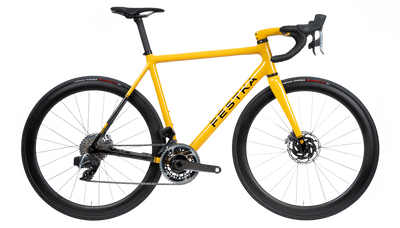
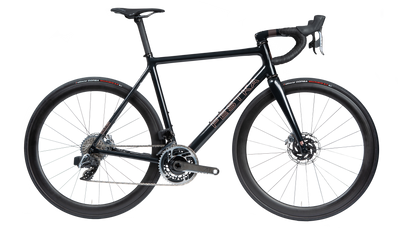
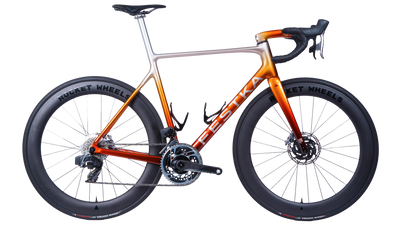
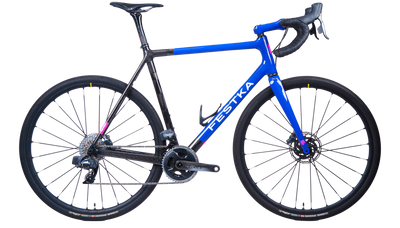
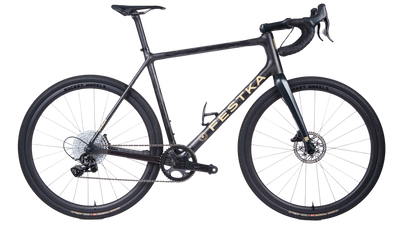



Leave a comment